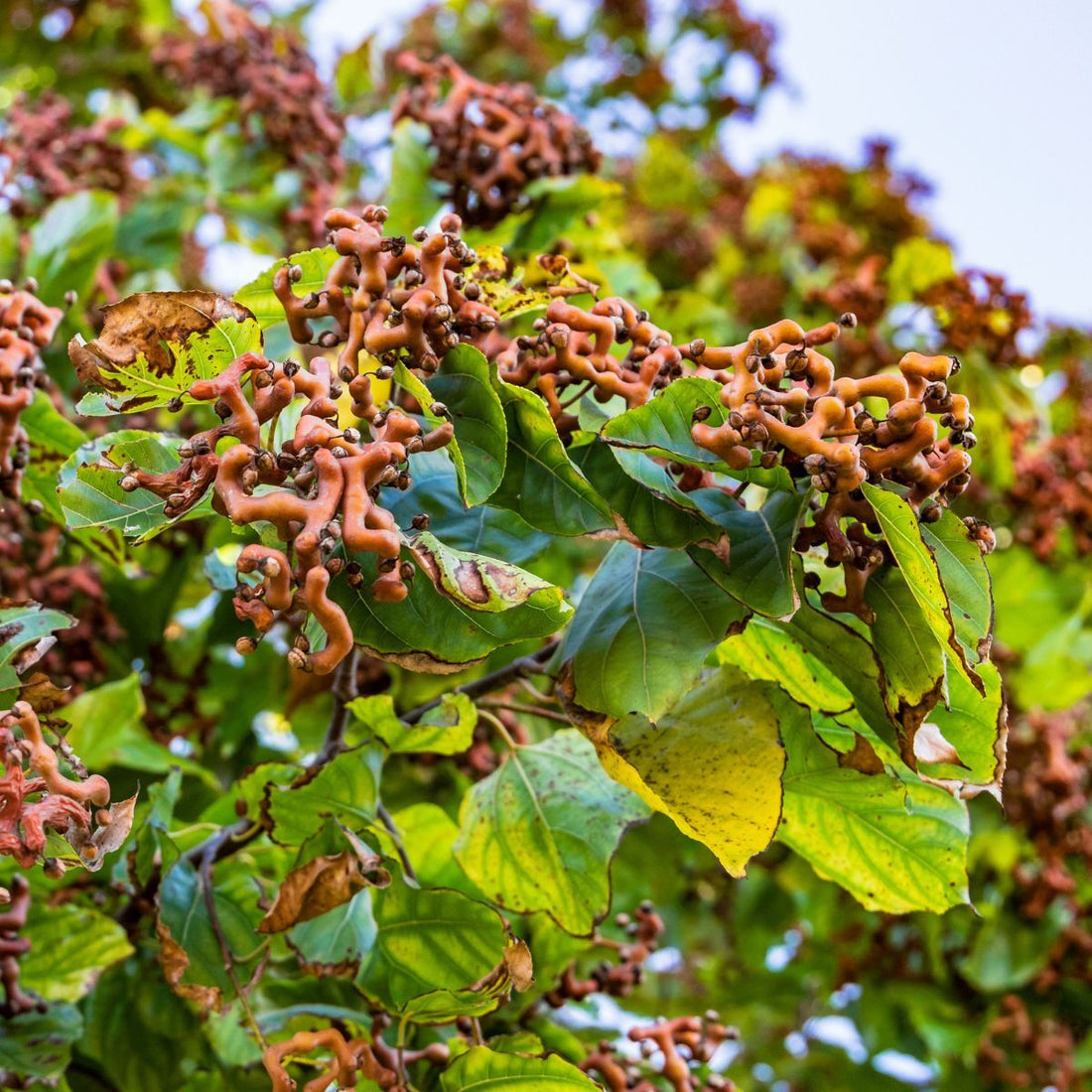Research indicates that dihidromyrycetin (DHM) found in Japanese Raisin Fruit stimulates liver enzymes to accelerate the breakdown of acetaldehyde, the toxic byproduct of alcohol metabolism.
Found throughout East Asia, the Japanese raisin tree is a fruit tree. It looks like a fruit from another world, brown and knobbly and forked like a twig. People in China, Japan and Korea have been consuming it for centuries as a herbal antidote to alleviate hangovers and treat alcohol toxicity.
Only recently has modern medicine started to unlock the secrets behind this ancient remedy. In 2012, a study was done on rats. Researchers injected the little rodents with enough alcohol to make them sufficiently intoxicated (please don't try to repeat this at home!), followed by injections of dihydromyricetin (DHM), a flavonoid found in Hovenia Dulcis (the Latin name for the Japanese raisin tree). Researchers studied the rats' blood alcohol levels along with reactions in mazes and time taken to flip over from their backs. They compared control rats (those who didn’t receive DHM) with rats injected with the supposed hangover helper.
Within minutes, the rats with DHM started showing fewer signs of intoxication and hangover and were finally able to flip back over…while the control rats were still hiding in corners, being anti-social, and acting defensive. Poor little guys.
Another study conducted in 2017 reinforced the findings from the 2012 study. This time, researchers studied the specific effects of Japanese raisin tree extract as a whole on hangovers. They found that ingestion can, in fact, help the body metabolise alcohol more efficiently and protect liver function.
Japanese Raisin Tree extract standardised to a high (20%) concentration of DHM is the hero ingredient of Recovery Shield +, with a powerful 500mg per dose. Extracted by our lab to a 10x concentration, this is equivalent to an epic 5,000mg of Hovenia Dulcis fruit.

